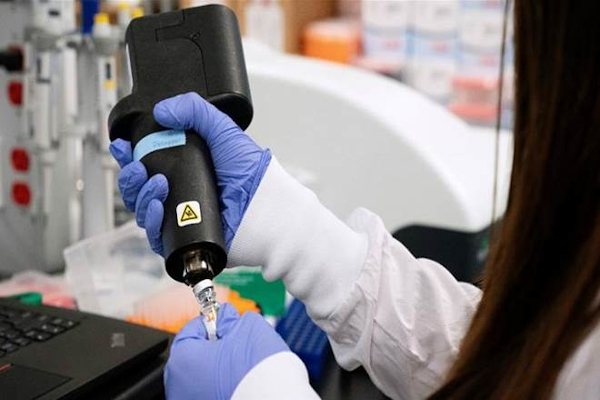CSIR’s constituent lab, Institute of Genomics and Integrative Biology (CSIR-IGIB) and TATA Sons signed a MoU for licensing of KNOWHOW for FNCAS9 Editor Linked Uniform Detection Assay (FELUDA) for rapid diagnosis of COVID-19.
The license shall include transfer of the knowledge for scaling up the KNOWHOW in the form of a kit that can be deployed for COVID-19 testing on ground as early as end of May. A completely indigenous scientific invention, FELUDA for COVID-19 has been designed for mitigating the ongoing COVID-19 situation and cater to mass testing. Its main advantages are its affordability, relative ease of use and non-dependency on expensive Q-PCR machines. CSIR IGIB and TATA Sons will now work together to bring it for widespread use at the earliest.
Commenting on the agreement, Mr Banmali Agrawala, President – Infrastructure and Defence & Aerospace, Tata Sons said, “we are happy to enter into a partnership with Institute of Genomics and Integrative Biology of CSIR (Council of Scientific & Industrial Research) for further development and commercialisation of Clustered Regularly Interspaced Short Palindromic Repeats (CRISPR) based technology for COVID-19 detection. This innovative CRISPR ‘Feluda’ test uses cutting edge CRISPR technology for detection of genomic sequence of novel coronavirus. It uses a test protocol that is simple to administer and easy to interpret enabling results to be made available to the medical fraternity in relatively lesser time, as compared to other test protocols. We believe that CRISPR is futuristic technology that can also be configured for detection of multiple other pathogens in the future.
DG-CSIR, Dr Shekhar C Mande commented that “CSIR labs such as CSIR-IGIB have been working on deep science and developing cutting edge technology and I am happy to see that leading Industry TATA Group is partnering towards its deployment. The strong partnership with industry in tackling COVID-19 has been the hallmark of CSIRs strategy in mitigation of COVID-19.
Dr Anurag Agrawal, Director-IGIB highlighted that the technology was conceived and developed at CSIR IGIB under sickle cell mission and utilizes an indigenously developed cutting edge CRISPR Cas9 technology to specifically recognize COVID-19 sequence in a sample. A combination of CRISPR biology and paper-strip chemistry leads to a visible signal readout on a paper strip that can be rapidly assessed for establishing the presence of viral infection in a sample.
Source: IBEF
You may also like
-
India Against Mpox
-
Combination of ‘Siddha’ Drugs Reduces Anemia in Adolescent Girls: Study
-
Suspected Mpox Case Under Investigation; Patient Put Under Isolation, No Cause for Alarm
-
Prime Minister Applauds India’s Best Ever Performance at the Paralympic Games
-
National Exit Test (NExT) for Ayush to be Effective from 2021-2022 Batch: Union Minister of Ayush Shri Prataprao Jadhav
